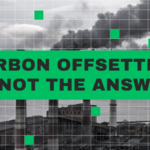
Europe’s Gas Power Plant Overbuild Undermines Climate Credibility
November 15, 2024 12:01 amAs European countries position themselves as global climate leaders at COP29, a new briefing from Beyond Fossil Fuels reveals a […]

As European countries position themselves as global climate leaders at COP29, a new briefing from Beyond Fossil Fuels reveals a […]

5 steps, 5 benefits for Italian municipalities Italy’s reliance on fossil fuels has increased energy costs, worsened health and environmental […]

Analysis by Beyond Fossil Fuels reveals the energy companies that have received the highest value of European “capacity market” contracts […]

With the Science Based Targets initiative and the Greenhouse Gas Protocol (GHG Protocol)‘s revisions in full swing, many actors are […]

More than 80 leading civil society organisations, including Beyond Fossil Fuels, have issued a joint statement rejecting the use of carbon offsets to meet corporate climate targets. We call on accounting bodies like the Science-Based Targets Initiative (SBTi) and the Greenhouse Gas Protocol to continue excluding offsets and stick to scientifically-sound methodologies for tracking corporate climate efforts.

We are at a critical threshold in our computational futures. Investment in artificial intelligence (AI) is booming, and its application across society is accelerating at an unprecedented scale. Meanwhile in 2024, the 1.5C global warming limit was surpassed across the entire year, and the boundaries of several life-supporting planetary systems have been exceeded. Devastating heat waves, storms, fires and floods remind us of how human activity impacts all life on this planet.

Energy communities are essential for decentralising power systems and advancing the transition to a fully renewable-based European power system by 2035.

It's imperative for countries and communities to switch their district heating systems to renewable energy sources if we are to cut emissions, improve air quality and keep energy bills at bay.

Europe's power sector must transition to a renewables based future, free from coal by 2030 and from fossil gas by 2035. These milestones are crucial in limiting global warming to 1.5°C and ensuring stable, affordable energy.